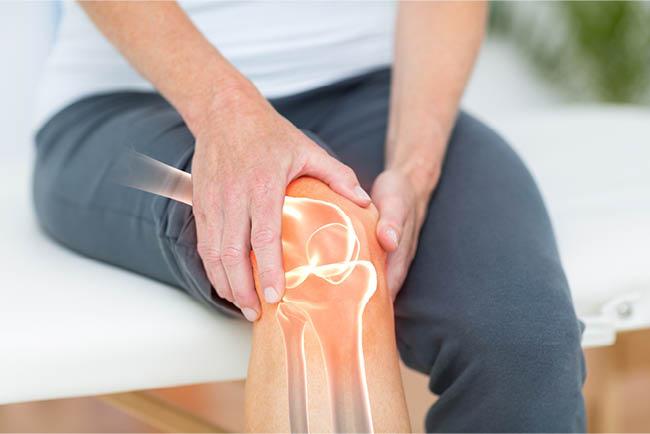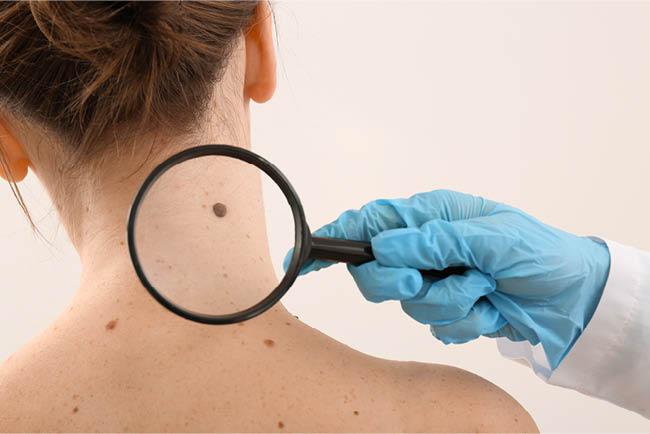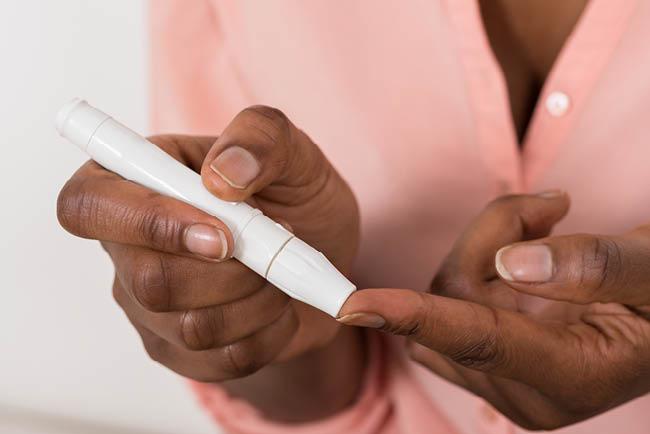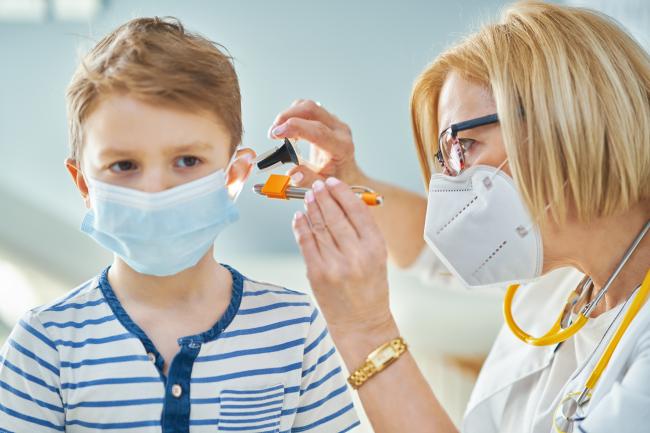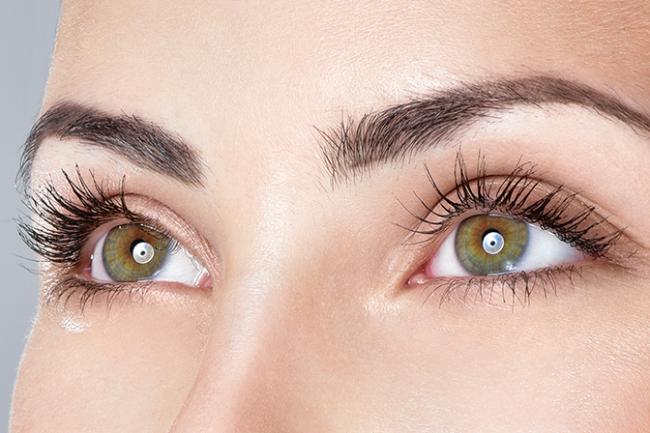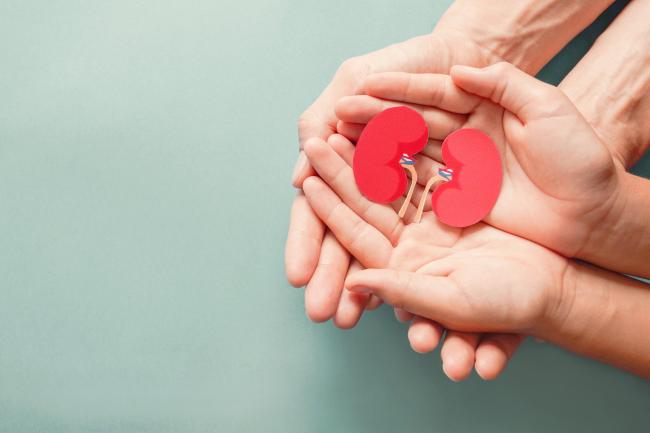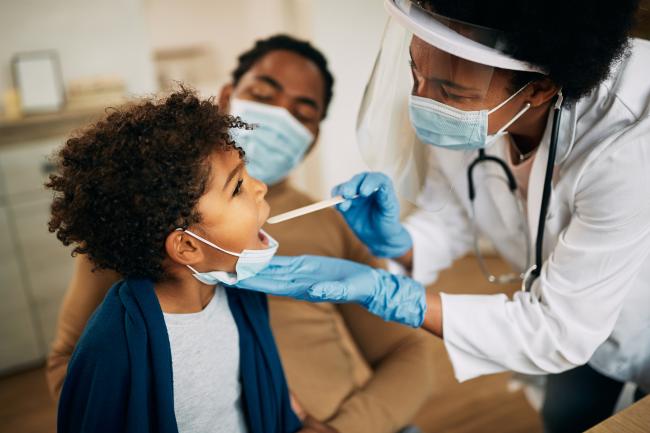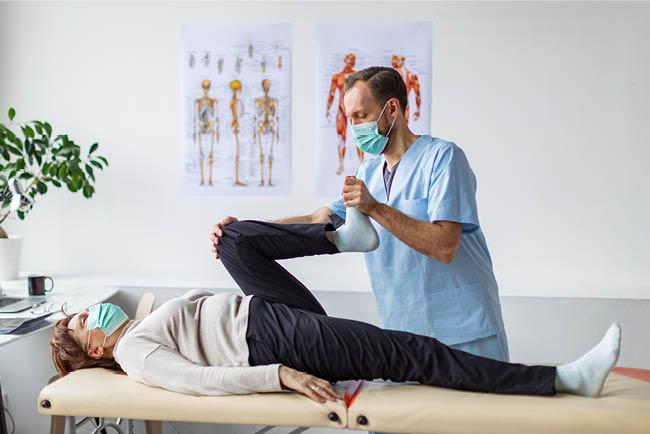Search Studies
Research studies are looking for volunteers just like you. Both healthy volunteers and participants with specific health conditions are needed to help answer important questions impacting the health of our friends and family. Join us to improve the health of others.
-
PROMISE
Official Title PRenatal and Obstetric Maternal Exposures and ISlet Autoantibodies in Early Life (PROMISE)Purpose
The purpose of this study is to find out more about how health and exposures during pregnancy, such as having an infection, diet and growth may impact later risk of islet autoimmunity in the
child. We are also interested in finding out more about why having a father or sibling with type 1 diabetes increases risk of autoimmunity in the child than having a mother with type 1 diabetes.Could this study be right for you?
Inclusion:
- Pregnant women:
- who is between 8-24 weeks gestation with a singleton pregnancy
- have had type 1 diabetes for at least 12 months, or the father of the baby or a full sibling of the baby has type 1 diabetes
- is 18 years of age or older
- is willing to have blood collected and to complete questionnaires about prenatal exposures once per trimester during their pregnancy (up to 3 visits) and up to 12 weeks after they deliver their baby
- is willing to have their baby screened for genetic risk for type 1 diabetes, to complete online questionnaires, and to have their child followed for measurement of islet autoimmunity according to the determined risk for type 1 diabetes, through 5-7 years of age.
- If low risk, two screenings: the first at 2 years of age and the second between 5-7 years of age
- If high risk, five screenings: every six months through 2 years of age, and one between 5-7 years of age
The father of the baby will also be asked to complete one visit during pregnancy but it is not mandatory.
Exclusion:
- Multiple Gestation pregnancy
- Mother unable to consent due to intellectual impairment
- Fetus with known medical issue that would affect study participation
- Surrogate / gestational mothers who are not biologically related to offspring they are carrying
Age Range
18 years and up - Pregnant women:
-
Research Study on Light Sensitivity after Head Injury
Official Title Effect of Fixation Training with Colored Light Targets on Traumatic Brain Injury-Associated PhotophobiaPurpose
Researchers at The Ohio State University College of Optometry are seeking individuals with a recent history of head trauma who are experiencing light sensitivity. The goal of this study is to determine if daily 20 minute fixation training sessions using a colored (red or blue) light target affects symptoms of light sensitivity, or alters other measurements of the eyes and vision including pupil response.
This study will involve attending five 1-2 hour study visits, occurring every 1.5 months for 6 months. Study visits will include answering questions about eye and health history, completing surveys, reading letters on an eye chart, having the pupils measured in response to flashes of light, measuring the side vision, measuring eye alignment and in some cases focusing ability. Outside of the study visits, participants will also complete daily 20 minute fixation training sessions for 6 months using a colored (red or blue) light target, completed at home between study visits.
Could this study be right for you?
- Must be 18 to 80 years old
- Experienced a head injury 3 or more months ago
- Current symptoms of light sensitivity
- Be healthy and have good eye health
Age Range
18 - 80 years -
Healthy Diet Study
Official Title A prospective randomized unblinded study of ketogenetic versus mixed diet on exercise tolerance in subjects with the metabolic phenotype of heart failure with preserved ejection fractionPurpose
The purpose of this study is to compare the effects of a well-formulated ketogenic diet with a low-fat diet on exercise tolerance in patients with diabetes or pre-diabetes or obesity; with shortness of breath or heart failure.
Could this study be right for you?
Inclusions:
- Age ≥ 18 years old and ≤ 80 years old & willingness to be randomized to either diet.
- NYHA class I – III for at least 3 months.
- Ejection fraction ≥40% by biplane 2D, or 3D echo, or CMR.
- Echo findings of abnormal or indeterminant diastolic function or RHC data: At rest: mean pulmonary capillary wedge pressure (PCWP) > 15 mmHg. Pulmonary vascular resistance (PVR) < 3 Wood Units.
- Stable medical therapy for at least 3 months as determined by the treating physician (no new cardiac or diabetic medications within 3 months of enrollment or during enrollment and dosage should be stable for 1 month prior to enrollment).
- Dose of oral diuretics changes allowed but must be stable for 1 week prior to randomization.
- Body Mass Index (BMI) ≥ 25 and ≤ 50 or Type 2 Diabetes Mellitus or prediabetes (fasting glucose of 100 - 125 mg/dL or hemoglobin A1C 5.7-6.4%) or metabolic syndrome.
- Ability to participate in exercise treadmill testing.
- Ability to sign written consent.
Exclusions:
- Women who are pregnant, current breast-feeding, or have intention to become pregnant while in the study.
- Known allergy or sensitivity to gadolinium-based contrast agents.
- Implanted pacemaker, cardioverter defibrillator, Cardiac resynchronization therapy, left ventricular assist devices.
- Other metallic implants/aneurysm clips that are contraindicated in MRI.
- Claustrophobia
- History of severe kidney disease of eGFR < 30 ml/kg/1.73m2.
Exclusion Criteria varies, please contact Study Coordinator.
Age Range
18 - 80 years -
Breathing Training Program for Breast Cancer Survivors with Obesity
Official Title Reducing exercise intolerance through inspiratory muscle training in obese breast cancer survivors (IMOCS)Purpose
The purpose of this study is to better understand why some survivors of breast cancer have difficulty exercising. We also want to learn if breathing exercises can make it easier to tolerate exercise.
Could this study be right for you?
- Breast Cancer Survivor
- Completed treatment within 6 months–5 years
- Have obesity, defined as body mass index between 30-50 kg/m2
- Can exercise independently
Age Range
18 years and up -
Assessing Non-invasive Spinal Stimulation to Evaluate its Safety and Effectiveness in Individuals with Spinal Cord Injury
Official Title ExaStim Upper Limb Pivotal Clinical Validation StudyPurpose
The purpose of this study is to evaluate the safety and effectiveness of ExaStim® transcutaneous spinal stimulation on upper extremity function when applied in combination with physical therapy (PT) and/or occupational therapy (OT).
Participants will be randomized to the stimulation group or a control group. Outcomes will include sensory, motor, and functional tests, as well as questionnaires.
Could this study be right for you?
- Aged 22 years or older
- Traumatic chronic spinal cord injury
- Level of injury between C2-T2
- No active implanted medical device for electrical stimulation
- No Botox for 3 months
- Have a chronic, traumatic SCI (chronic is >12 months since injury, or 6 months if unchanged symptoms)
- Has some, but limited upper extremity function
- BMI <40
- Cannot be pregnant
Age Range
22 years and up -
A study assessing the impact of a treatment on anxiety and stress in individuals with memory concerns.
Official Title Treatment of Stress and Anxiety in mild cognitive impairment (MCI)/Mild Alzheimer's Disease and related dementias (ADRD) and their care partners: A Randomized Controlled TrialPurpose
The purpose of this study is to assess the impact of a treatment on anxiety and stress in individuals with memory concerns and those already with a diagnosis of Mild Cognitive Impairment (MCI), Mild Alzheimer's Disease and related dementias.
Could this study be right for you?
The primary participant must:
- Be at least 60 years of age
- Have a “care-partner” that is willing to participate in the full program (such as a spouse, child or a good friend)
- NOT have a terminal illness or severe motor impairment
- Be able to use a computer and smartphone and read English at the 6th grade level
The care partner must:
- Be at least 18 years of age
- Be able to use a computer and smartphone and read English at the 6th grade level
Age Range
60 - 99 years -
A Study about Retirement from Contact Sports after Concussion
Official Title Retirement from contact sports after concussionPurpose
The purpose of this study is to learn about the experiences of children and young adults after they stop playing contact sports due to concussion.
Could this study be right for you?
- Male and females aged 14-22 years old
- Retired from contact sports due to prior concussion
Additionally, a parent may participate if their child enrolls.
Age Range
14 - 22 years -
Treatment of Chronic Hepatitis C Virus During Pregnancy
Official Title Safety, Tolerability, and Outcomes of Velpatasvir/SofosbuviR in Treatment of Chronic Hepatitis C Virus during Pregnancy (STORC), pregnant womanPurpose
This study involves evaluating a medication for hepatitis C in pregnant women.
If you are a pregnant woman with chronic hepatitis C and you join the study, you are consenting to enroll yourself and your baby after he/she is born.
Maternal participants will have 7 visits over approximately 7 months. Infant participants have four visits over approximately the first year of life.
Could this study be right for you?
(This is not a complete list)
- Must be 18 - 45 years of age
- Chronic HCV infection of at least 6 months
- Singleton pregnancy at 20 + 0 to 30 + 0 weeks’ gestation
- Documented negative Hepatitis B testing for current infection (negative HBsAg test) prior to enrollment
- If living with HIV, must be on antiretroviral therapy
Exclusion Criteria (not a complete list)
- Plans to relocate away from the study site area in the next 16 months and unable/unwilling to return for study visits
- History of cirrhosis
- Known fetal chromosomal abnormality prior to enrollment
Age Range
18 - 45 -
Evaluating the Effectiveness of a Wearable Wrist Band in Reducing Symptoms of Nausea and Vomiting (WINNER Study)
Official Title Evaluating the effect of a WearIng a TENS-device in NausEa Relief (The WINNER Study)Purpose
The purpose of this study is to evaluate if this wearable device can help manage nausea in those who suffer from this problem chronically.
If you choose to participate, then you will be given the study device to wear on your wrist for 12 weeks. In the weeks before and during this time, you will complete a series of daily and weekly questionnaires about your nausea symptoms, mood, sleep, and bowel habits.
Could this study be right for you?
- Nausea going on for more than 2 months
- 18 years or older
- Able to understand English
- Seen at OSU for their care
- Able to complete surveys online using either smartphone or computer
Age Range
18 and up -
A Study About Gene Therapy for Early Alzheimer’s Disease (AD) and Mild Cognitive Impairment (MCI)
Official Title A Phase I Study to Assess the Safety, Tolerability and Preliminary Efficacy of AAV2-BDNF [Adeno-Associated Virus (AAV)-based, Vector-Mediated Delivery of Human Brain Derived Neurotrophic Factor] in Subjects with Early Alzheimer’s Disease and Mild Cognitive ImpairmentPurpose
The primary aim of this study is to determine whether administration of the nervous system growth factor "Brain-Deruved Neurotrophic Factor" (BDNF) to eligible patients with Alzheimer's disease and Mild Cognitive Impairment is safe and tolerable. This study will be used to determine whether BDNF administration reduces neuronal loss and rebuilds synapses in the brain of patients with Alzheimer's Disease (AD) and Mild Cognitive Impairment (MCI).
Could this study be right for you?
- Male and Females aged 50 years or older
- Diagnosis of dementia due to Alzheimer's Disease/Diagnosis of Mild Cognitive Impairment (MCI) due to Alzheimer’s Disease
- A caregiver is available who has frequent contact with the subject, agrees to observe for adverse events, and will accompany the subject to all clinic visits for the duration of the protocol
- CT or MRI scans within 24 months prior to screening without evidence of an infection, infarction, or other focal
Inclusion Criteria varies, please contact Study Coordinator for more information.
The below Exclusion Criteria apply to both the AD and MCI groups.
- Any significant neurological disease other than suspected incipient disease
- History of schizophrenia
- History of systemic cancer within the past 18 months (non-metastatic skin cancers are acceptable).
- Any significant systemic illness or unstable medical conditions which could lead to difficulty complying with the protocol
- Use of any investigational drugs within thirty days or five half-lives, whichever is longer, prior to screening.
Exclusion Criteria varies, please contact Study Coordinator for more information.
Age Range
50 and up -
Young Women’s Health Study
Official Title An Intervention Study about Primary Care Algorithms for Early Identification of Young Women with von Willebrand DiseasePurpose
Researchers at Nationwide Children’s Hospital are seeking volunteers to be a part of a study looking at how to best screen for bleeding disorders in young women.
Participants will be asked to complete questionnaires. If their survey answers suggest they have heavy menses or abnormal bleeding, they will also be asked to have a blood draw on the same day.
Could this study be right for you?
- Are 9 to 21 years old
- Have had your first menstrual cycle
Age Range
9 - 21 -
A Study to Examine if a Foot Stool can Make it Easier for People with Constipation to have a Bowel Movement (FASED Study)
Official Title FASED (Footstool in Alleviating Symptoms of Evacuation Disorder)Purpose
The purpose of this research study is to see if using a footstool can make it easier to have bowel movements in patients who suffer from chronic constipation. The participants will be given a free footstool to use. They will be asked to keep a record of their bowel symptoms and answer some surveys about their symptoms on a phone or computer.
You will be in the study for approximately 12 weeks. This includes 2 weeks before you start using the footstool, followed by 8 weeks where you will be using the footstool and up to 2 weeks to complete your initial and final surveys.
Could this study be right for you?
- At least 18 years old
- Able to understand English
- Symptoms such as feeling incompletely empty after a bowel movement, needing to strain a lot when having a bowel movement or needing to use maneuvers such as rocking one's body back and forth or using their finger to remove stool.
Age Range
18 - 99


